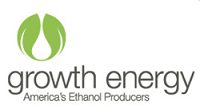Comments regarding the goals of the CAFE-GHG standards were due yesterday to the U.S. Environmental Protection Agency (EPA) and ethanol organizations made their voices heard.
 Comments submitted by the American Coalition for Ethanol (ACE) call for a federal pathway to be established to assist automakers to meet future mileage and environmental standards with higher blends of ethanol. Blends such as E30 would provide automakers with more octane. The comments were also submitted to the Department of Transportation’s National Highway Traffic Safety Administration (NHTSA) and the California Air Resources Board (CARB).
Comments submitted by the American Coalition for Ethanol (ACE) call for a federal pathway to be established to assist automakers to meet future mileage and environmental standards with higher blends of ethanol. Blends such as E30 would provide automakers with more octane. The comments were also submitted to the Department of Transportation’s National Highway Traffic Safety Administration (NHTSA) and the California Air Resources Board (CARB).
“ACE has been in dialogue with automakers, agricultural organizations, and government researchers to develop strategies and action plans to accelerate the transition of North American transportation fuels to higher-octane, lower-carbon renewable fuels such as ethanol,” said ACE Executive Vice President Brian Jennings. “If the agencies hope to fulfill the ambitious goals of the CAFE-GHG program going forward, a regulatory framework needs to be initiated immediately for lower-carbon, higher-octane fuel such as ethanol.”
 Growth Energy’s comments focused on the benefits of using high octane mid-level ethanol blends in future optimized engines, such as increased vehicle efficiency, increased acceleration, and significant reductions in greenhouse gas emissions.
Growth Energy’s comments focused on the benefits of using high octane mid-level ethanol blends in future optimized engines, such as increased vehicle efficiency, increased acceleration, and significant reductions in greenhouse gas emissions.
“Our comments highlight the wealth of available research that outlines the vital role that affordable, higher blends of ethanol can play in helping automakers achieve increasing future GHG and CAFÉ standards,” said Growth Energy Director of Regulatory Affairs Chris Bliley. “Furthermore, we encourage the agencies involved in this review to not only acknowledge the important role higher blends can play, but ensure they are part of the larger goal in achieving greater efficiency and a reduction in harmful emissions.”
![]() Comments from the Renewable Fuels Association (RFA) stress how high octane, low carbon (HOLC) fuels can play an important role in helping automakers comply with increasingly stringent fuel economy and greenhouse gas emission standards in the 2022–2025 time frame.
Comments from the Renewable Fuels Association (RFA) stress how high octane, low carbon (HOLC) fuels can play an important role in helping automakers comply with increasingly stringent fuel economy and greenhouse gas emission standards in the 2022–2025 time frame.
“This is an important process because it will determine the path forward for future energy efficiency and environmental goals,” said RFA President and CEO Bob Dinneen. “EPA has correctly identified technologies that will effectively improve energy efficiency and reduce greenhouse gases. But the agency has failed to appropriately consider the fuels that will enable those technologies. That is an omission that must be addressed moving forward if future vehicles can in fact help us address climate change without backsliding on other critical air quality and public health priorities. We look forward to working with EPA and NHTSA as this process continues,” he added.
The written comments were submitted in response to the draft of the Technical Assessment Report (TAR) of the 2022-2025 model year CAFE standards. The organizations listed above are conducting a Mid-term Evaluation (MTE) of the program, as a means of determining if the standards set in 2012 can in fact be meet in 2025.

